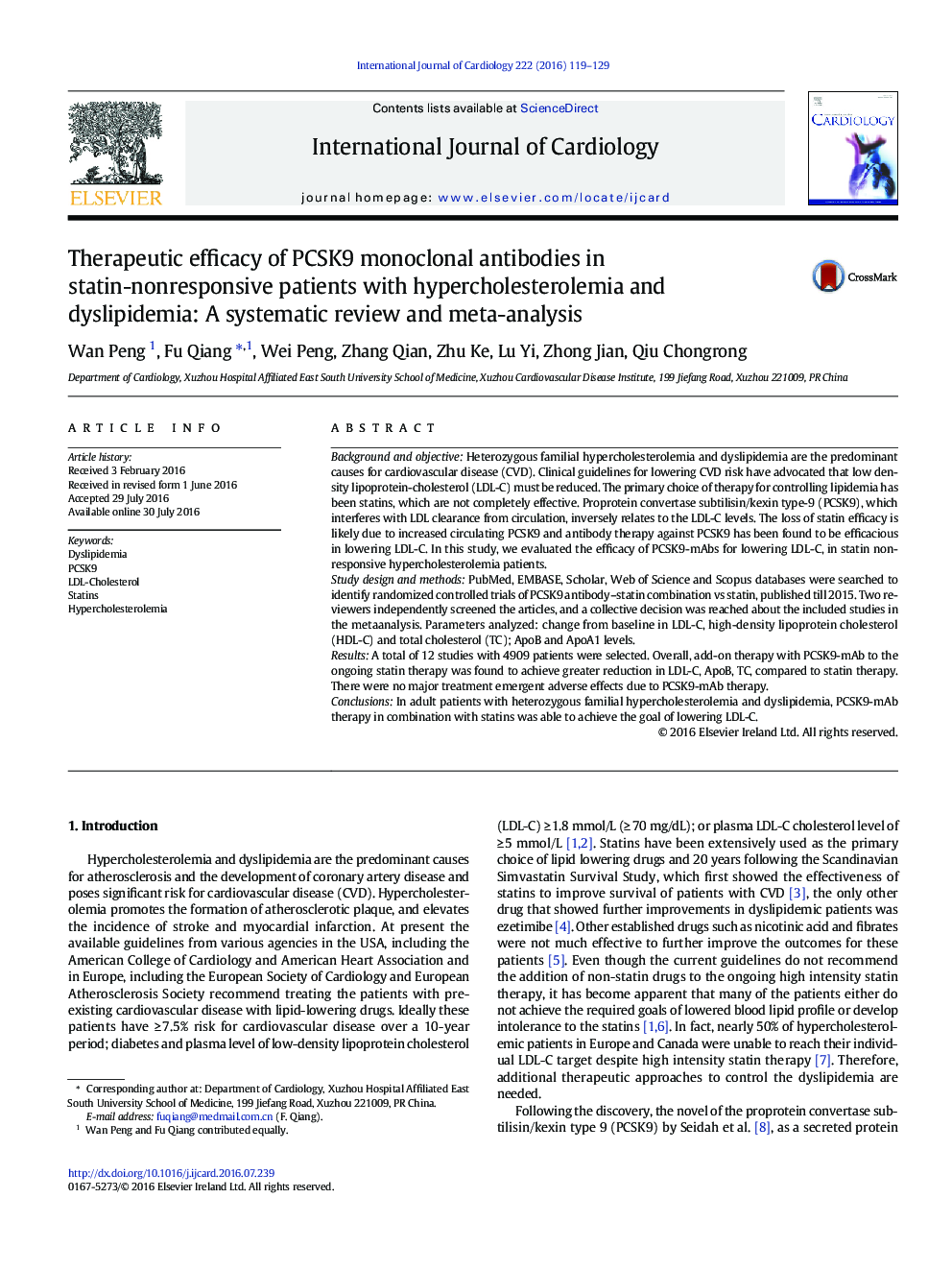| Article ID | Journal | Published Year | Pages | File Type |
|---|---|---|---|---|
| 5962546 | International Journal of Cardiology | 2016 | 11 Pages |
â¢Heterozygous familial hypercholesterolemia is a predominant cause for cardiovascular disease.â¢The primary choice of therapy has been statins, which are not completely effective.â¢PCSK9-mAbs have been found to be efficacious in lowering LDL-Cholesterol.â¢In this metaanalysis PCSK9-mAb therapy in combination with statins was found to lower LDL-C, effectively.
Background and objectiveHeterozygous familial hypercholesterolemia and dyslipidemia are the predominant causes for cardiovascular disease (CVD). Clinical guidelines for lowering CVD risk have advocated that low density lipoprotein-cholesterol (LDL-C) must be reduced. The primary choice of therapy for controlling lipidemia has been statins, which are not completely effective. Proprotein convertase subtilisin/kexin type-9 (PCSK9), which interferes with LDL clearance from circulation, inversely relates to the LDL-C levels. The loss of statin efficacy is likely due to increased circulating PCSK9 and antibody therapy against PCSK9 has been found to be efficacious in lowering LDL-C. In this study, we evaluated the efficacy of PCSK9-mAbs for lowering LDL-C, in statin non-responsive hypercholesterolemia patients.Study design and methodsPubMed, EMBASE, Scholar, Web of Science and Scopus databases were searched to identify randomized controlled trials of PCSK9 antibody-statin combination vs statin, published till 2015. Two reviewers independently screened the articles, and a collective decision was reached about the included studies in the metaanalysis. Parameters analyzed: change from baseline in LDL-C, high-density lipoprotein cholesterol (HDL-C) and total cholesterol (TC); ApoB and ApoA1 levels.ResultsA total of 12 studies with 4909 patients were selected. Overall, add-on therapy with PCSK9-mAb to the ongoing statin therapy was found to achieve greater reduction in LDL-C, ApoB, TC, compared to statin therapy. There were no major treatment emergent adverse effects due to PCSK9-mAb therapy.ConclusionsIn adult patients with heterozygous familial hypercholesterolemia and dyslipidemia, PCSK9-mAb therapy in combination with statins was able to achieve the goal of lowering LDL-C.
